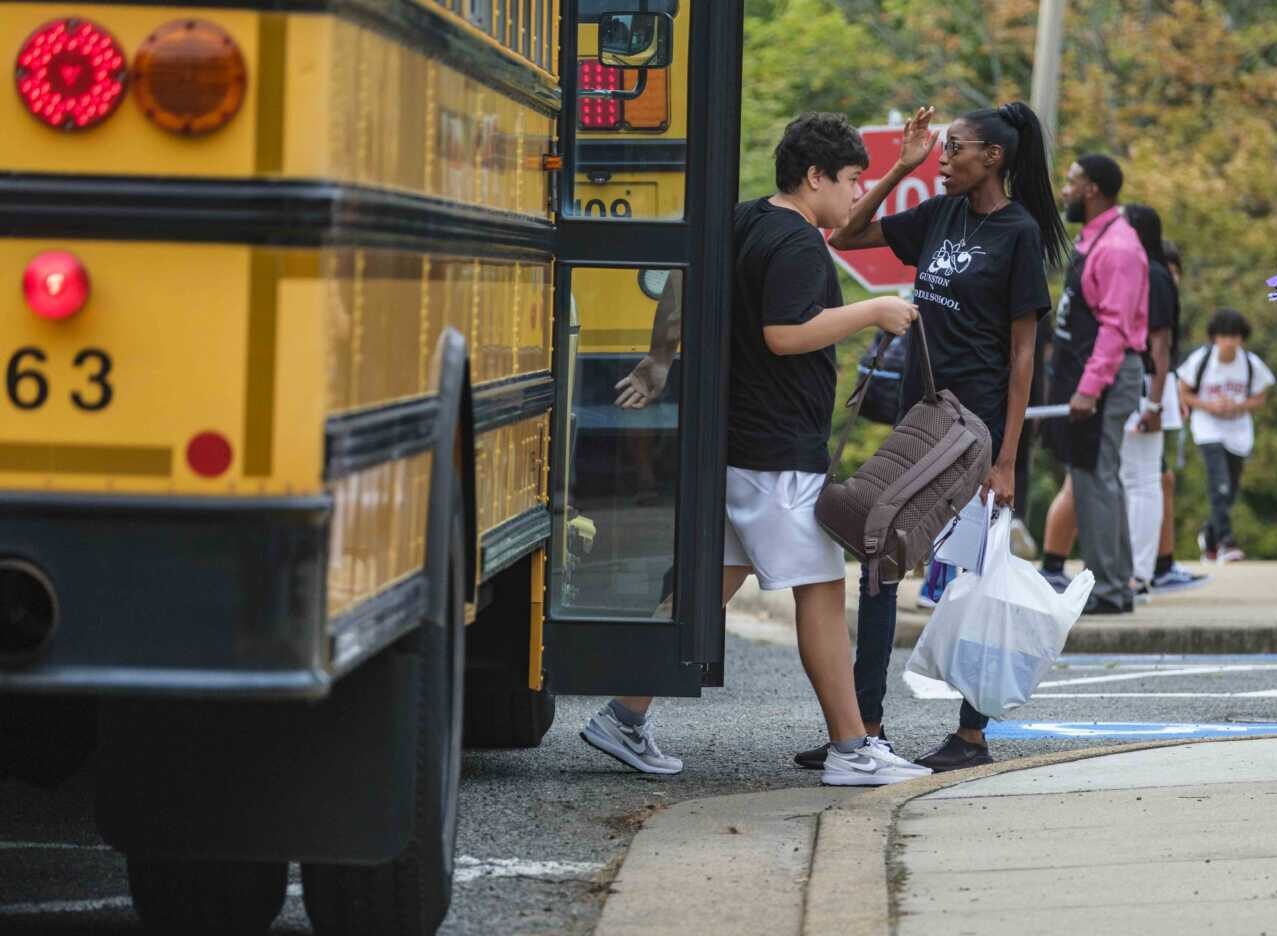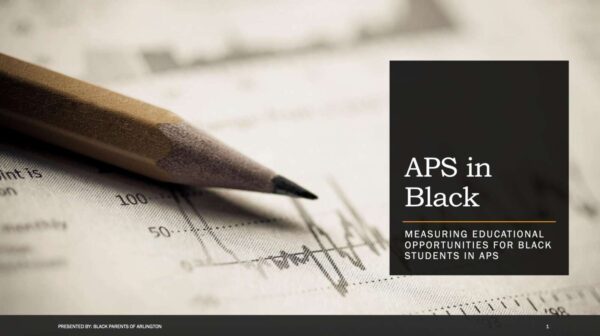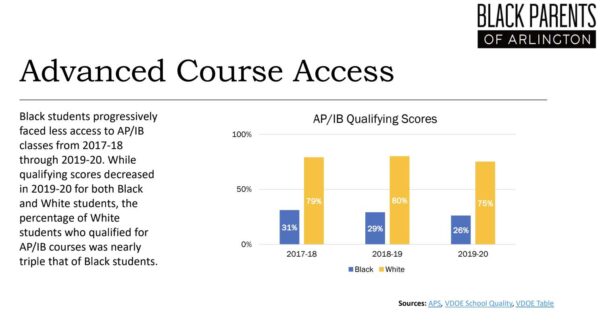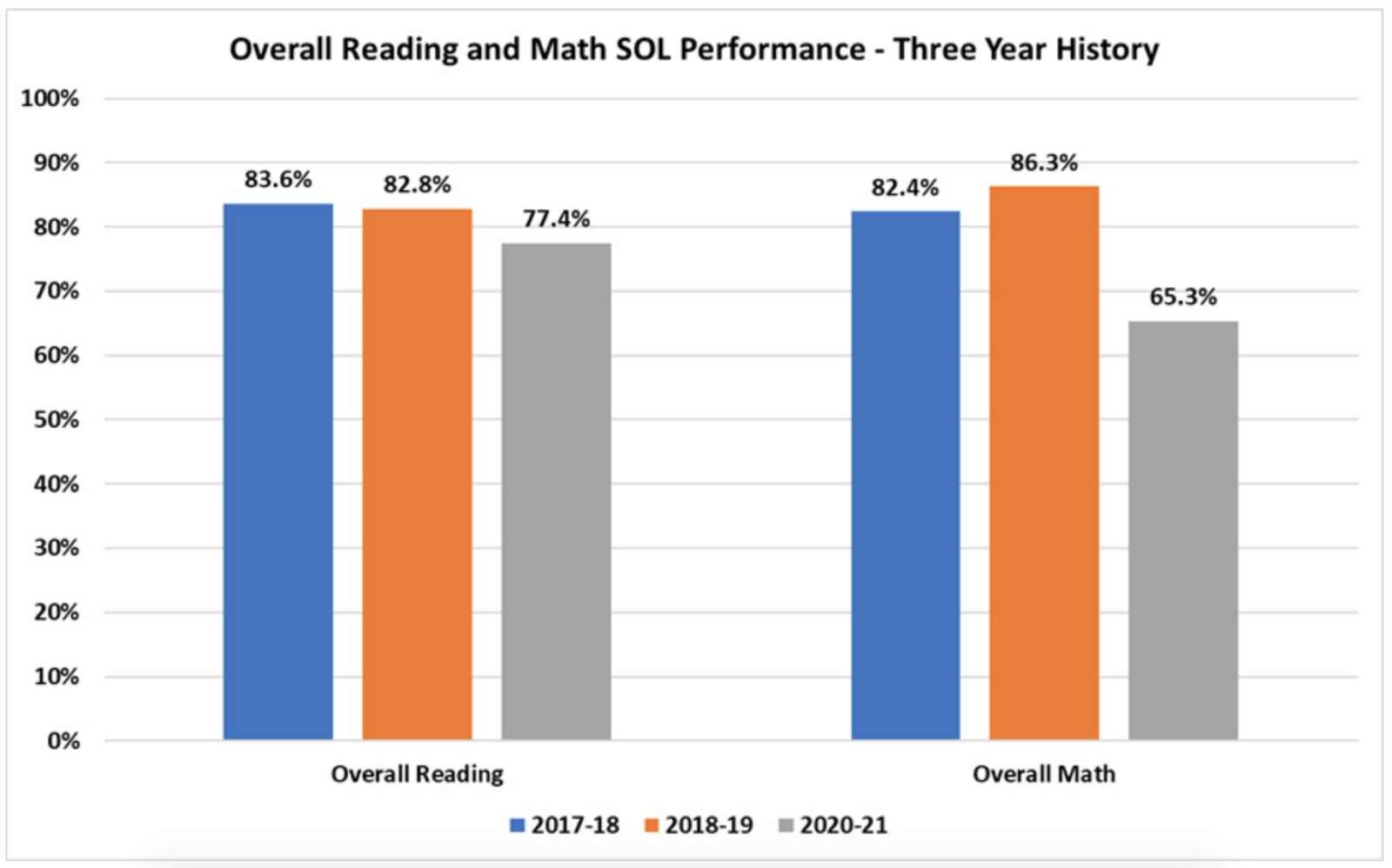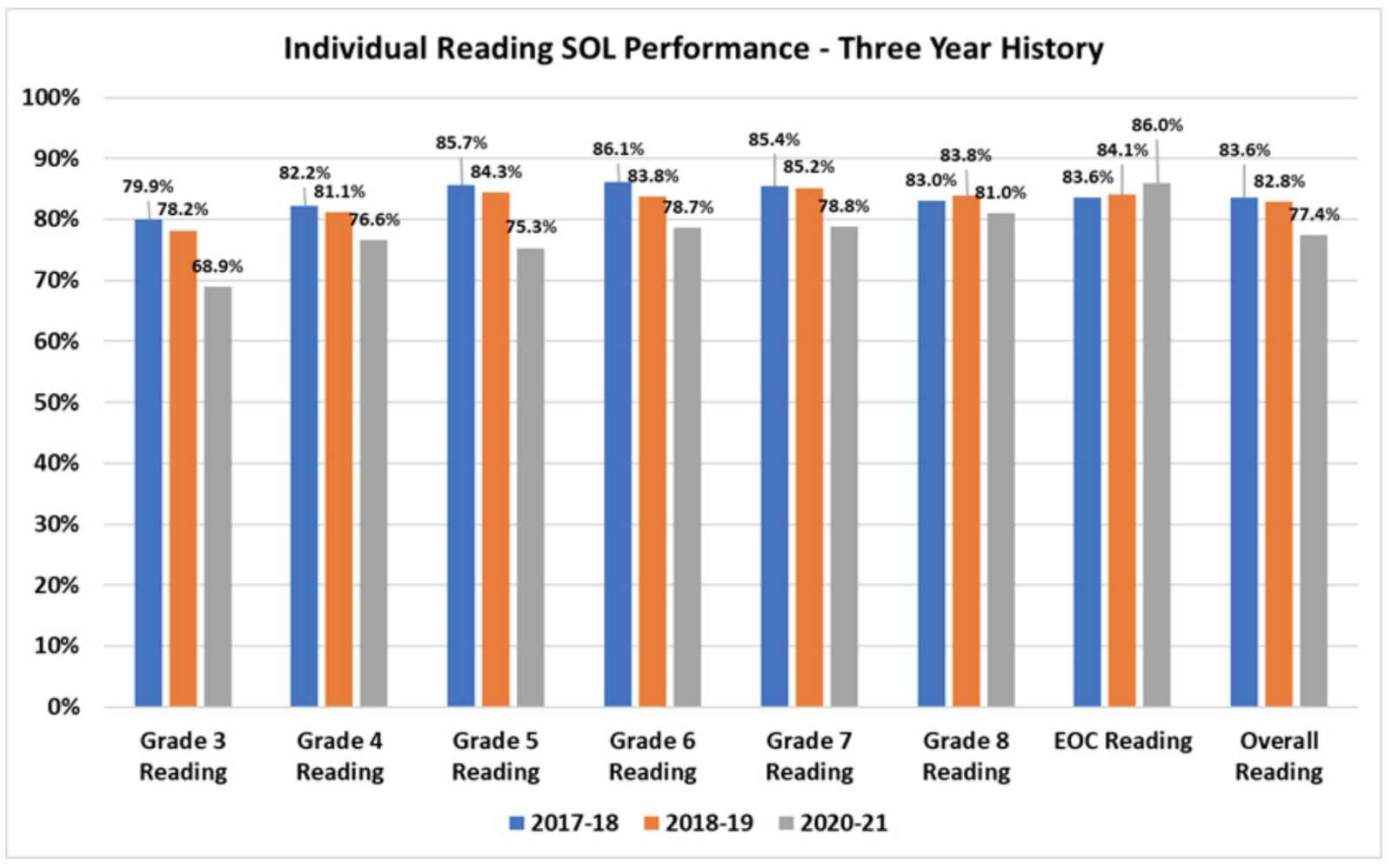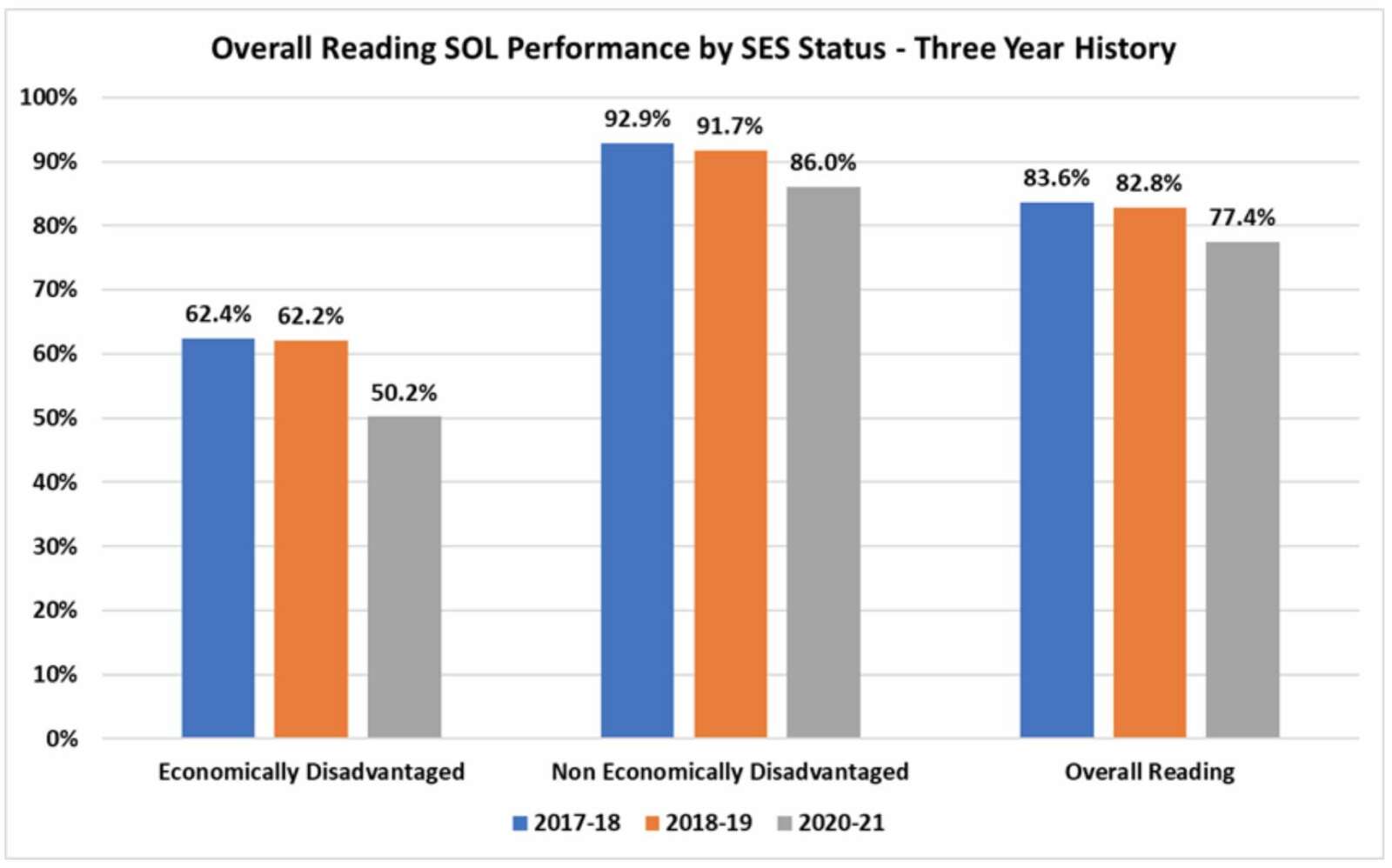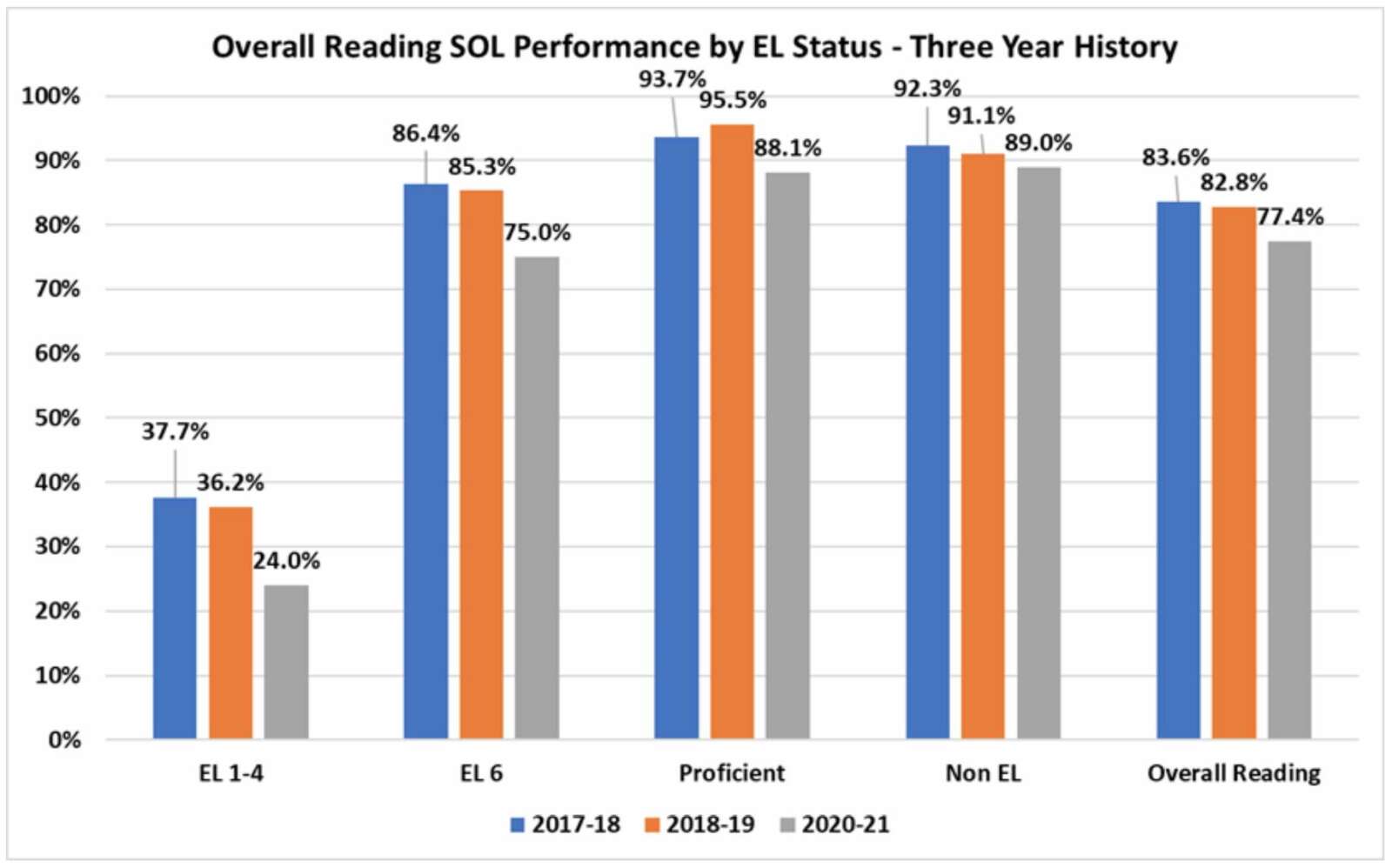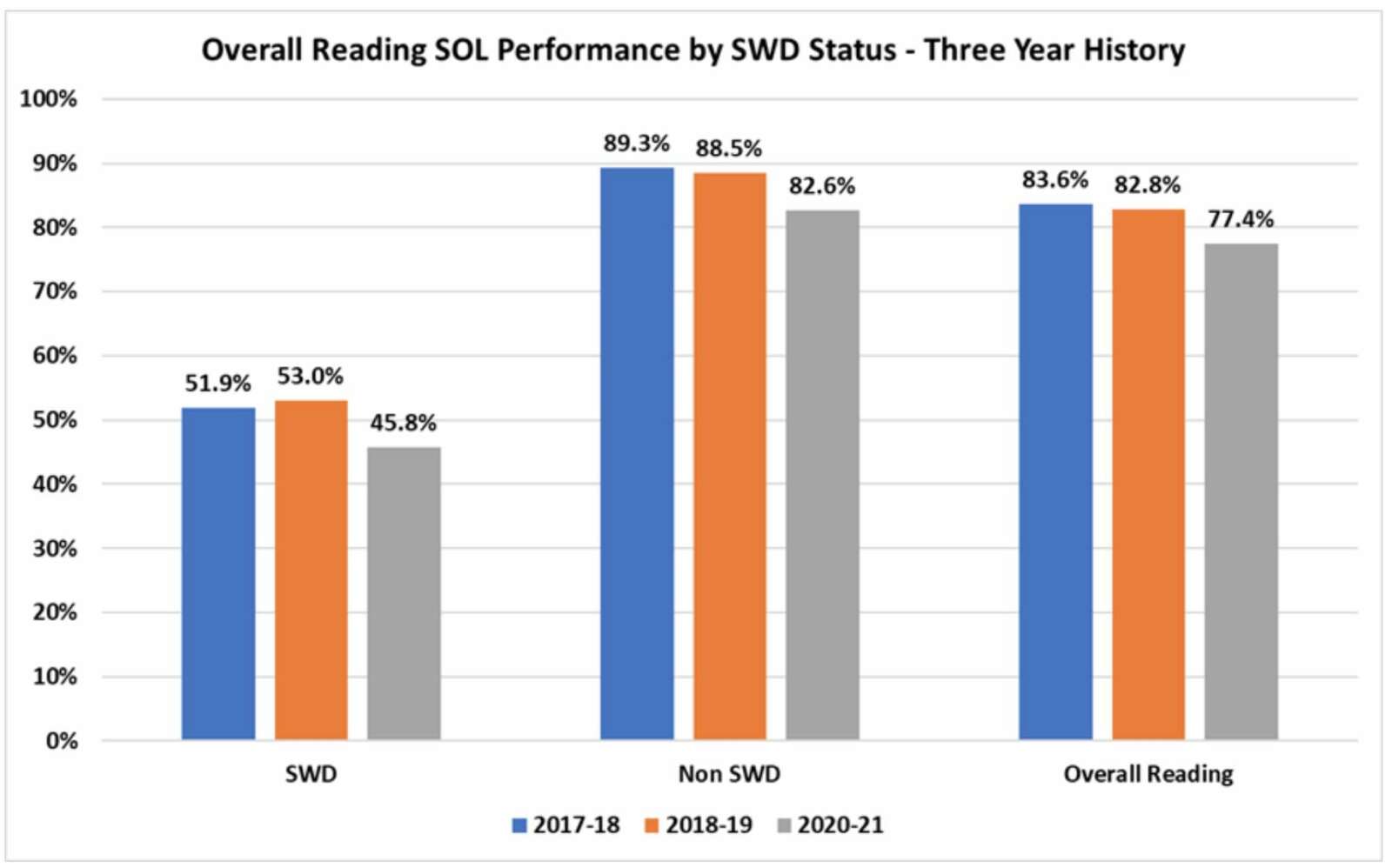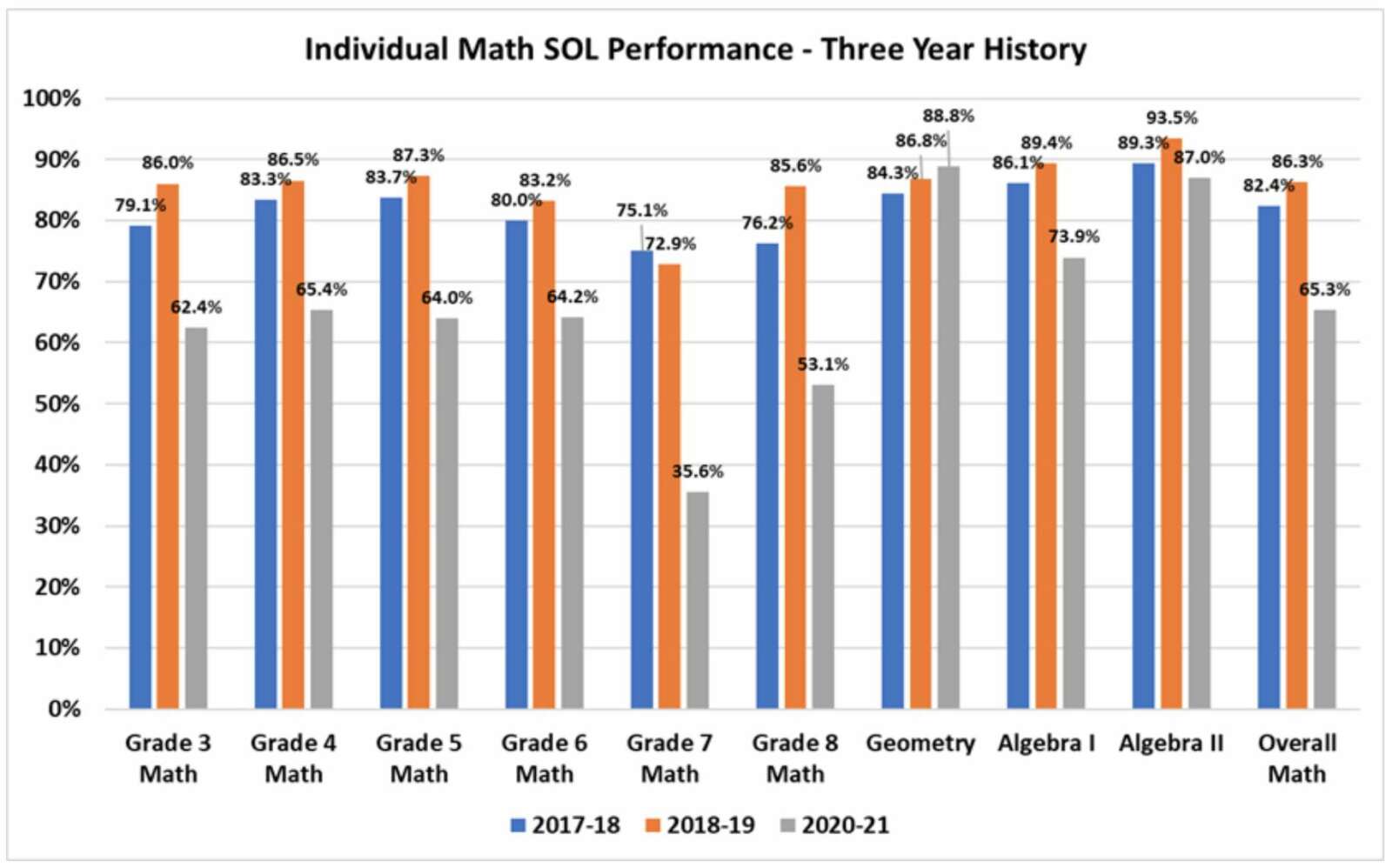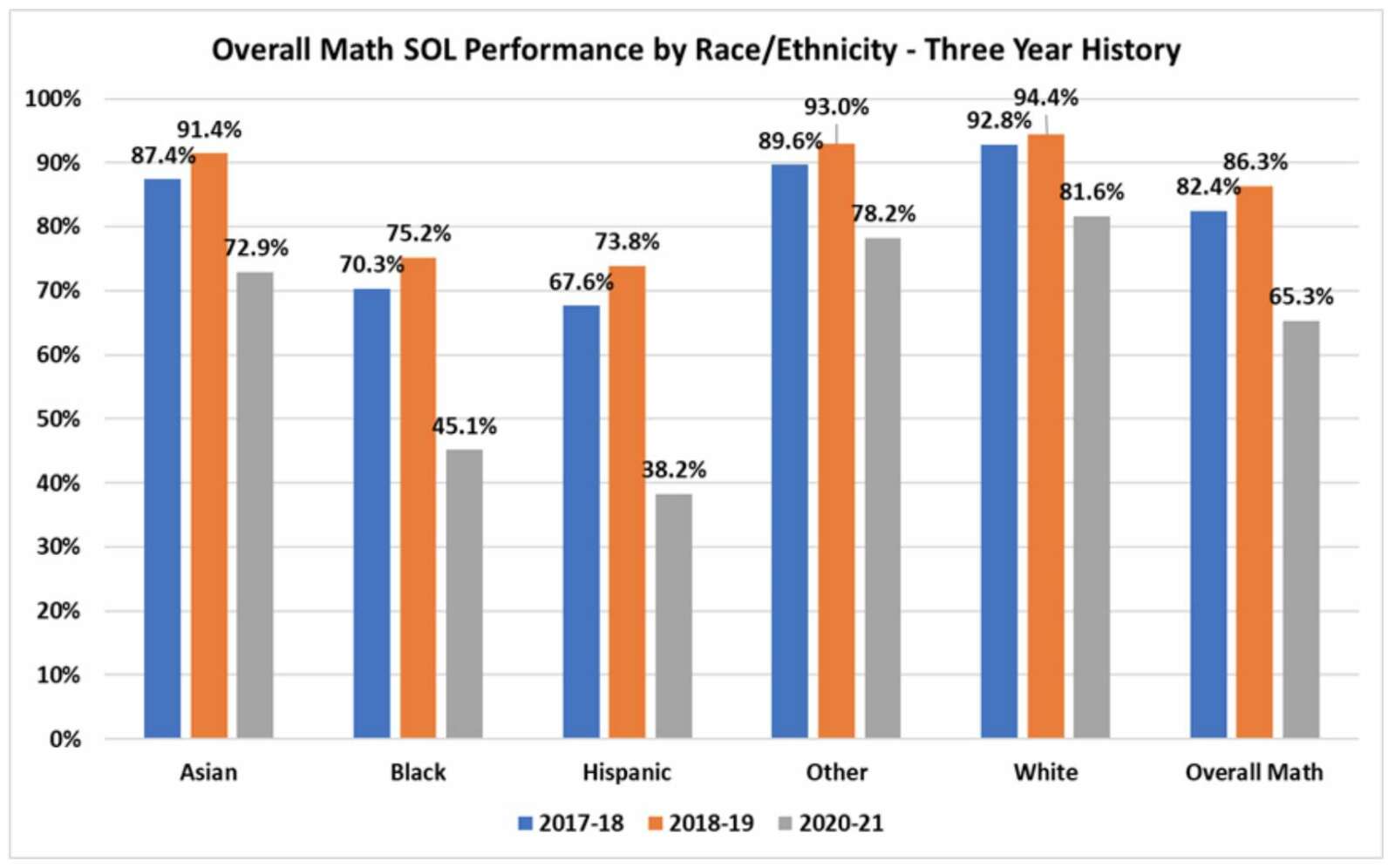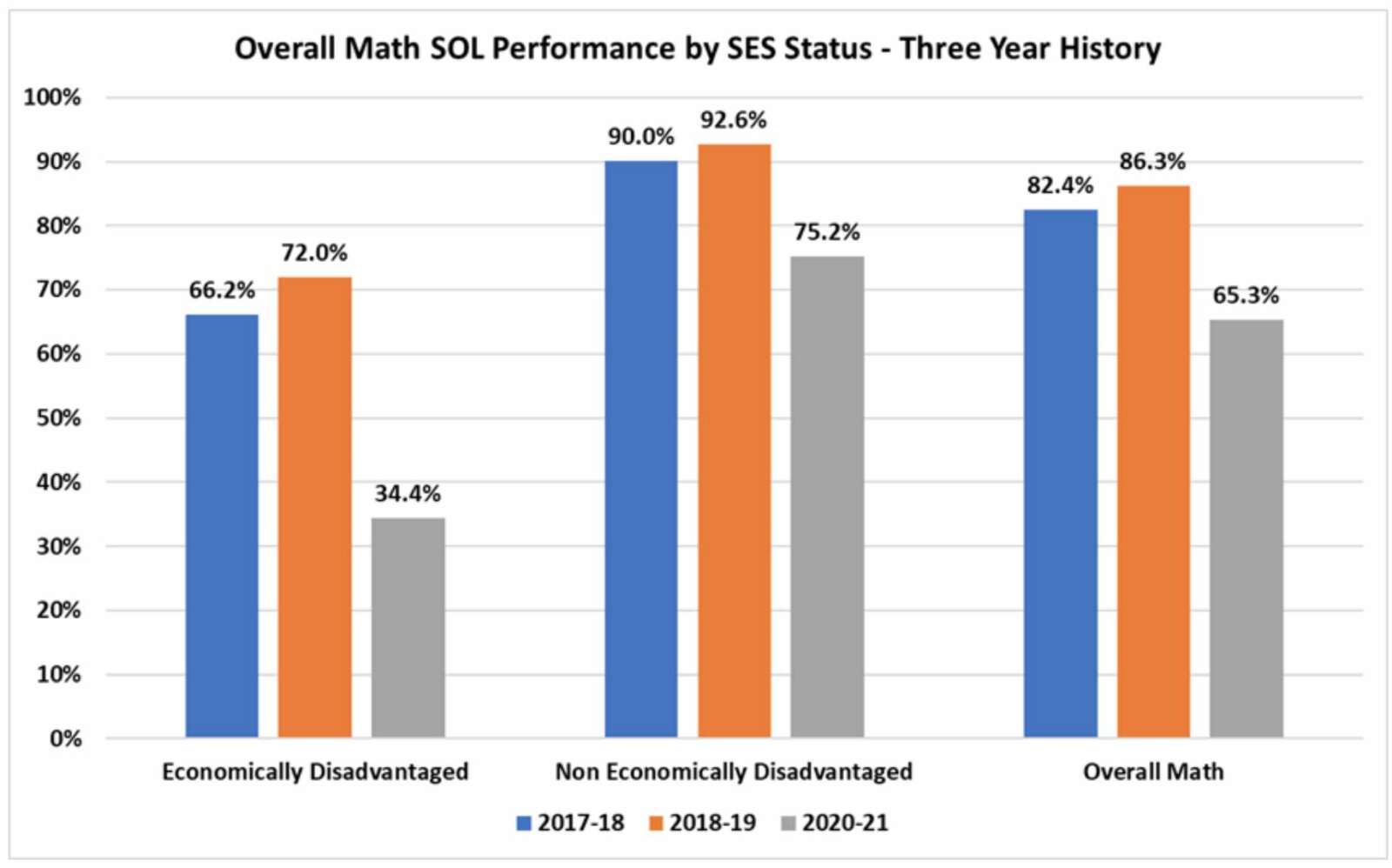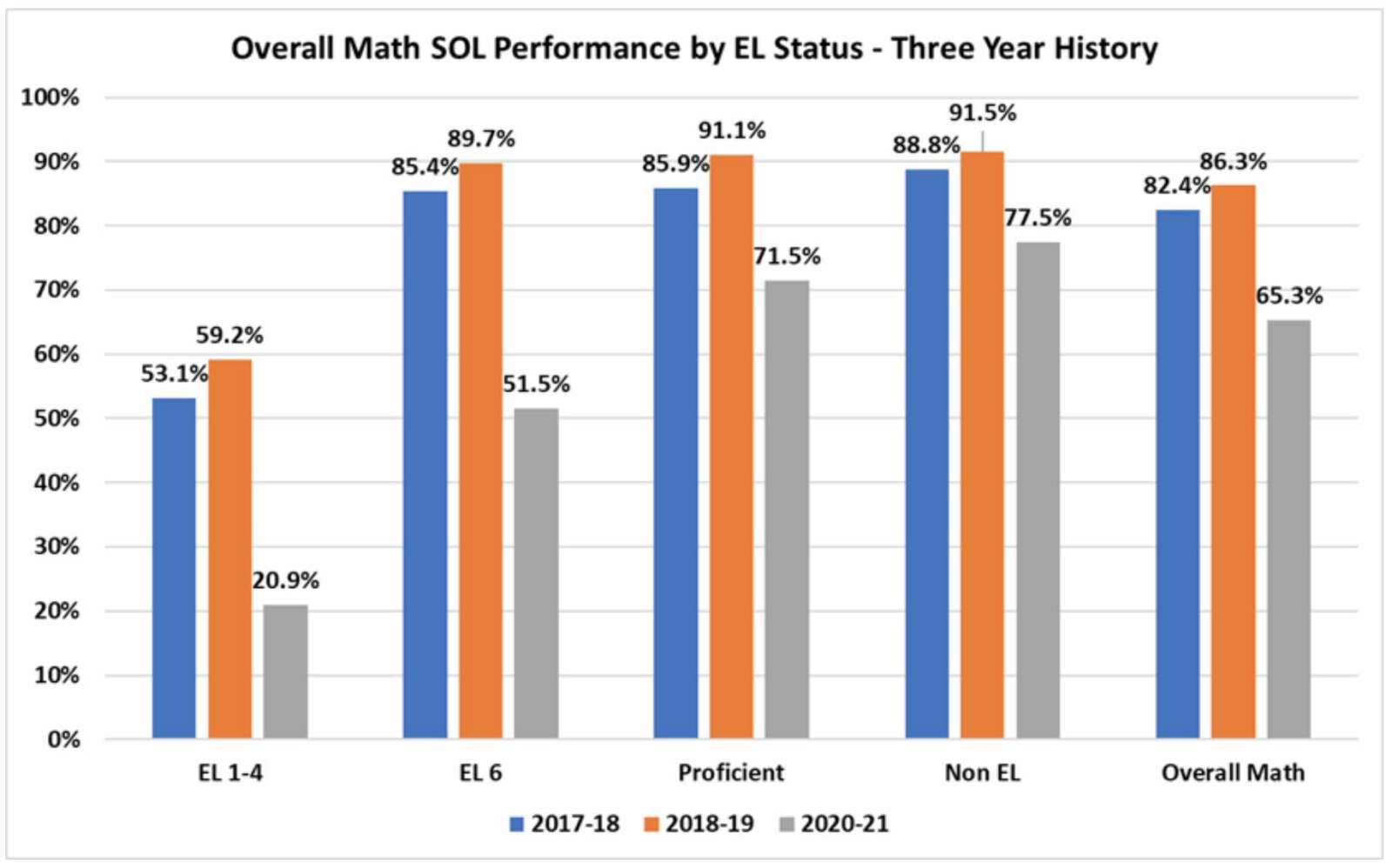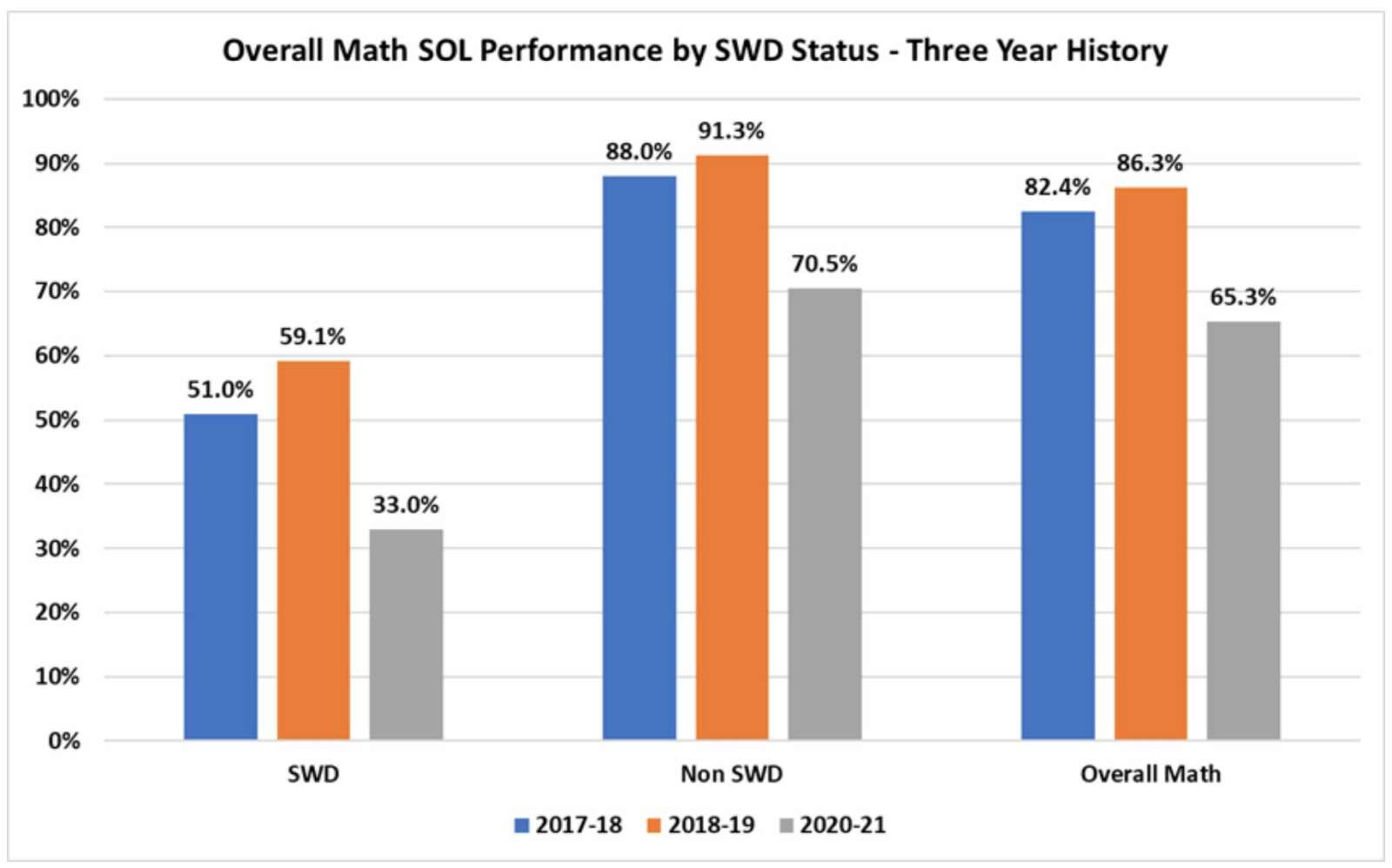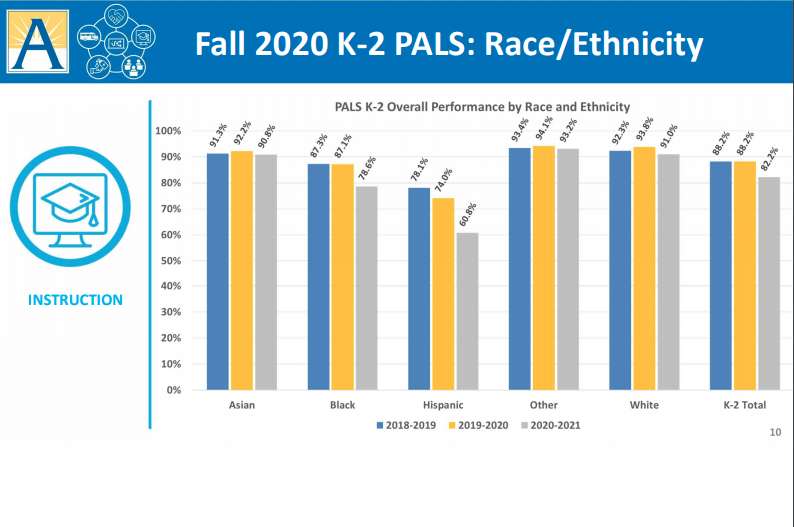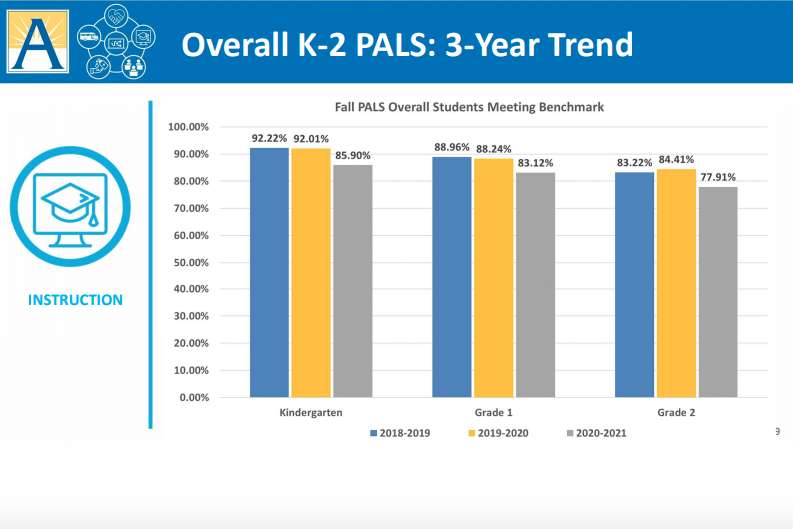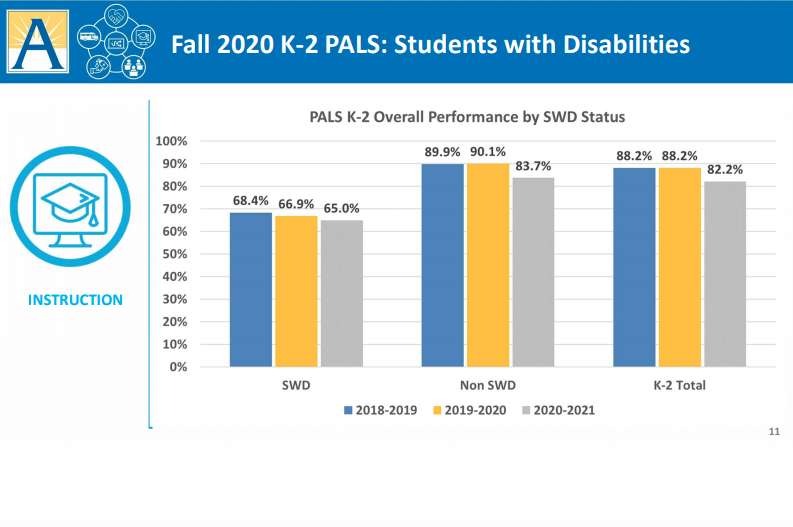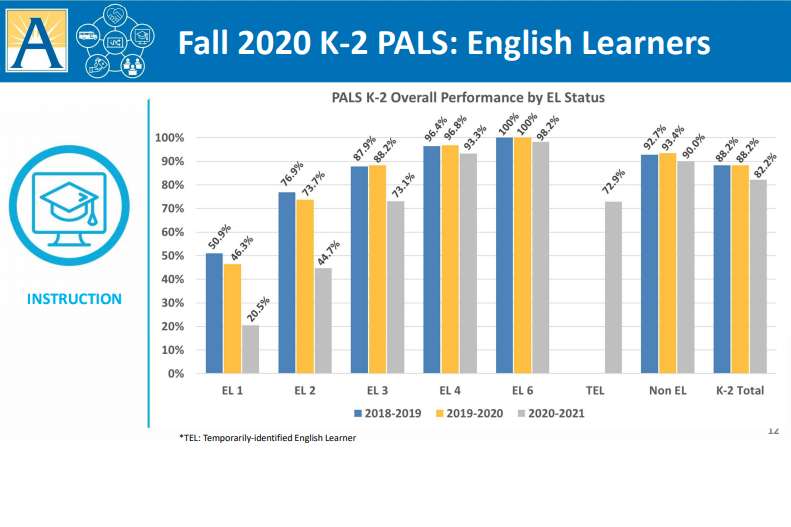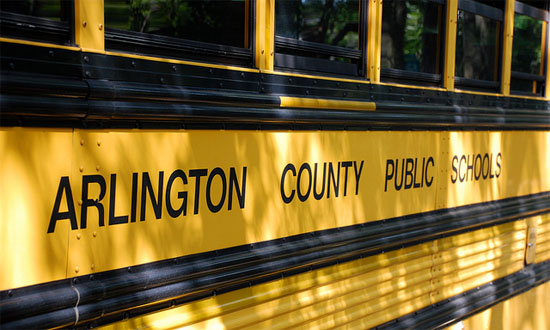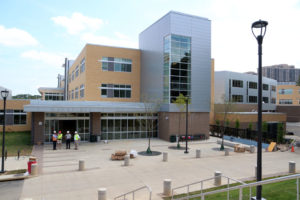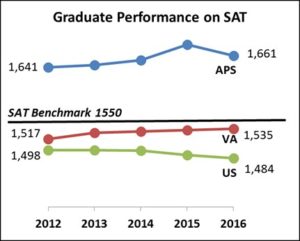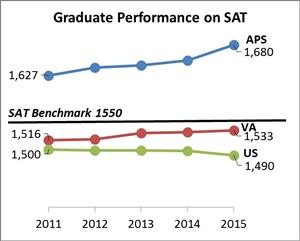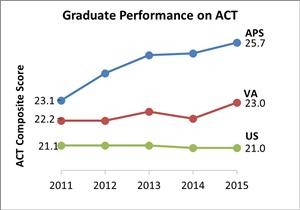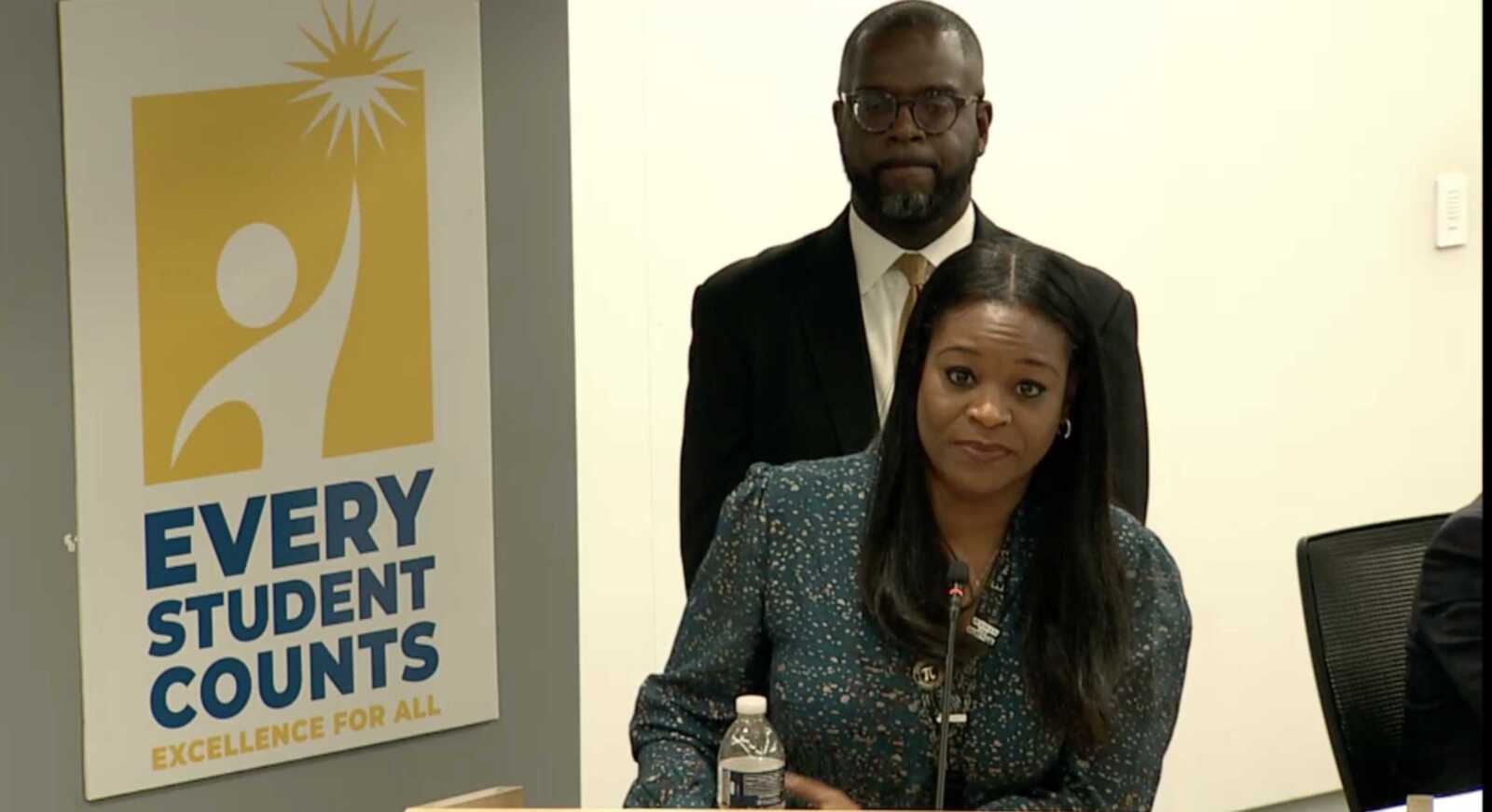
Arlington Public Schools says it is closing a math achievement gap worsened by Covid.
But a School Board watchdog group says the school system’s new progress report is missing pre-Covid data and paints a misleading picture of how far APS still has to go.
Overall, every student subgroup Arlington tracks — based on race or ethnicity or economic status, for instance — saw gains since in-person school resumed, according to the APS math office, which presented new data to the Arlington School Board during its Oct. 12 meeting. The new results were part of a discussion of the work of the office and math teachers to help students recover Covid-era drops in performance on state math tests called the Standards of Learning, or SOL.
The office highlighted the growth among students who scored the lowest on math SOL tests and received support from Arlington’s 10 new math interventionists. They are stationed at three middle schools in South Arlington and all but one of Arlington’s 10 Title 1 elementary schools, which have the highest concentration of low-income students. The office noted students with access to interventionists progressed more than their peers without that support.
The distinction was played as part of a pitch for more math interventionists in the upcoming budget. Elementary Math Supervisor Shannan Ellis said teachers report students with access to interventionists demonstrate more confidence in math, think more flexibly and persist when faced with challenges.
“This is for the children in Arlington County to get what they need,” Ellis said. “These are people who are working with our students [who] have the greatest need… [where] it is either highly improbable or impossible for teachers to grow them in one or more years.”
While the presentation focused on three-year trends, a “deeper dive” into more historical math data is forthcoming, Chief Academic Officer Gerald Mann told the School Board.
For Arlington Parents for Education, which formed during the pandemic to advocate for school reopenings and a focus on Covid-era learning loss, not including pre-Covid data downplays the width and persistence of achievement gaps in Arlington.
“APS should not obscure the large remaining challenges to the School Board or the public — it still has a long way to go in terms of recovering from the learning losses caused by prolonged school closures, which have dramatically increased the gap in performance between at-risk students and other students,” it says in a recent letter. “And the rate of recovery on both dimensions is too slow. ”
Virginia Dept. of Education data show the achievement gap in Arlington among Black and Hispanic and white students, for instance, was wider than the state-level gap pre-Covid. The pandemic exacerbated these gaps.
There are similar trends in the achievement gaps for students who are economically disadvantaged or learning English.
Among its issues with the presentation, APE disputed how the presentation celebrated that, for economically disadvantaged students, “APS is closing the gap faster than the state.”
“This overlooks the point above that we are ‘closing the gap’ faster primarily because there is a bigger gap to close (in comparison to the state),” it said, noting APS ranks 65th out of 130 districts in Virginia for math SOL rates for economically disadvantaged students, which is down 10 places from its ranking in 2016-17.
“In other words, not only is APS failing to improve the performance of at-risk students at the same pace as the state, in comparison to the year 2016-17, our performance relative to other districts has declined,” the group said.


